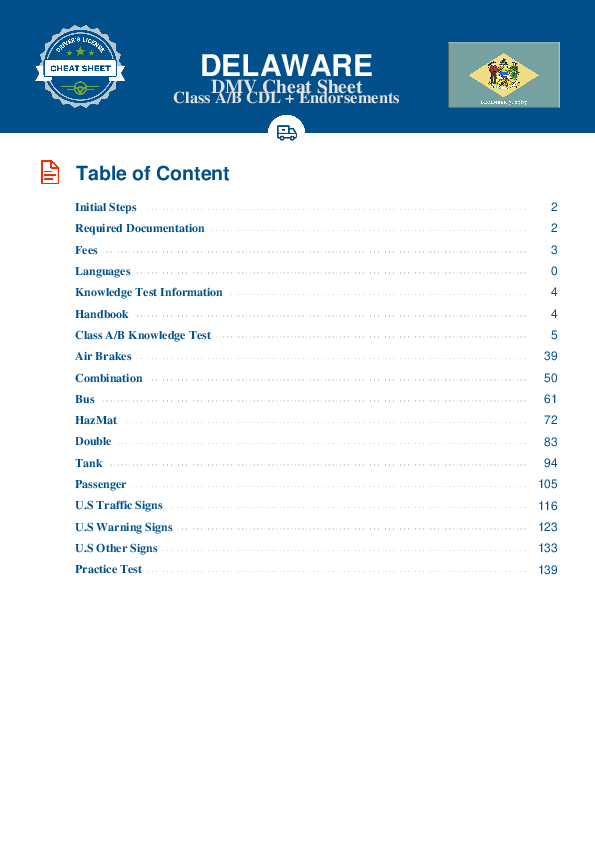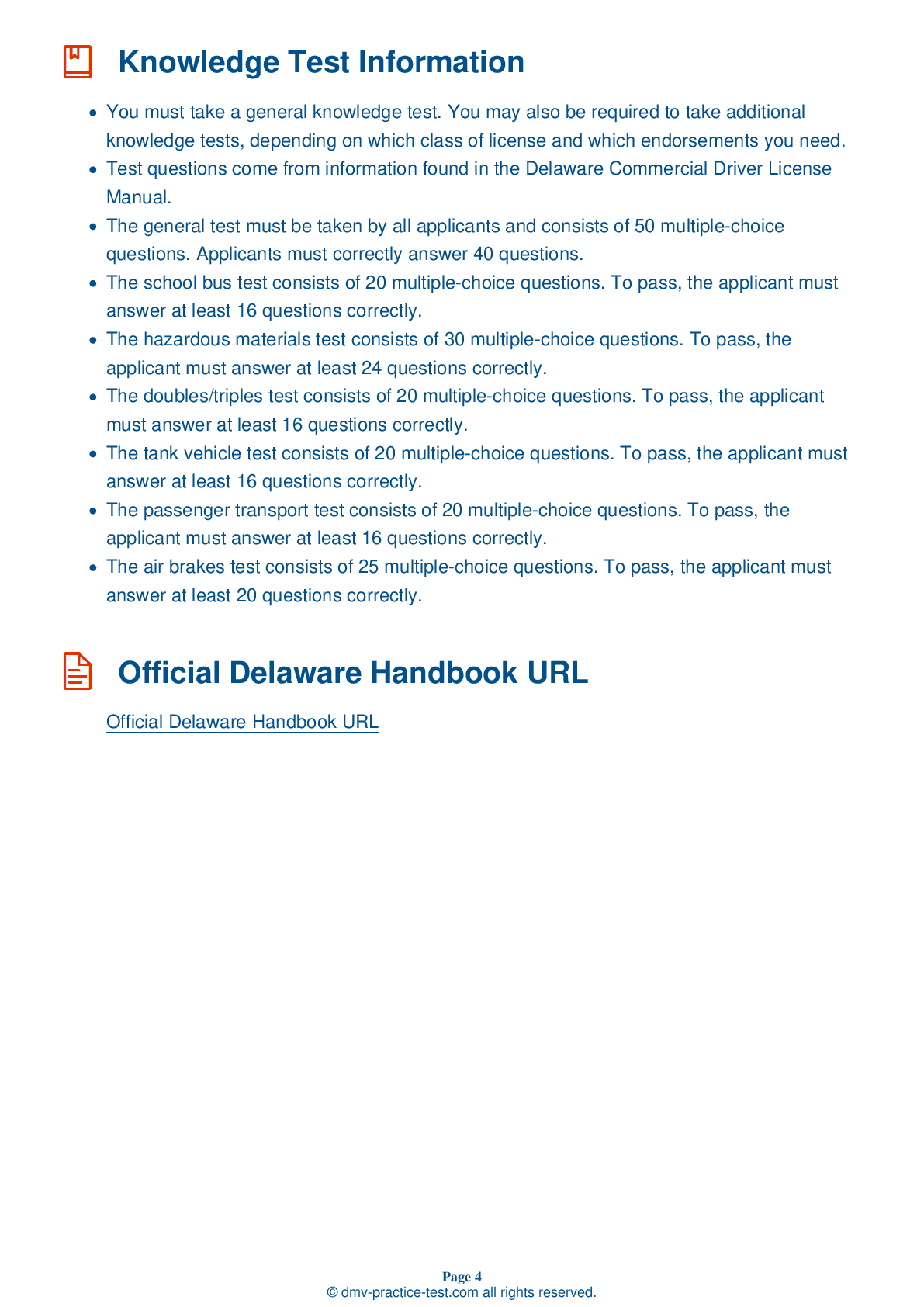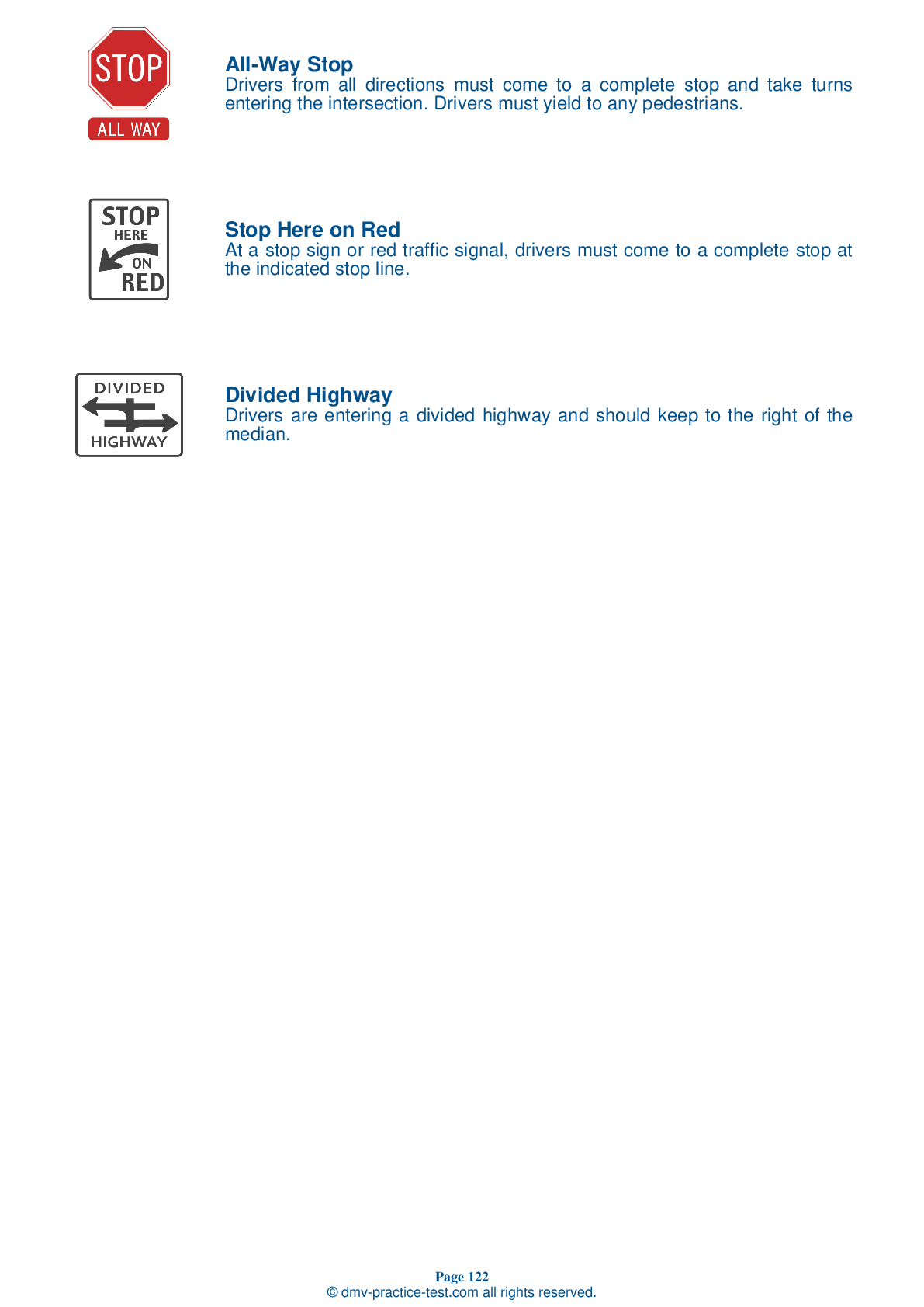Combination Vehicles Practice Test | Delaware 2026 #2
Train for FREE online with our Delaware CDL combination vehicle test. The official exam test consists of several obligatory parts, with all of them checking your knowledge of different blocks of road rules. If you need to obtain a DE combination license in 2026, practice as much as possible. Free sample tests published on our website will help you check and improve your knowledge and boost your grades. Please bear in mind that DMV requirements for issuing a combination license may vary from state to state.
1 . Avoid needing to make sudden lane changes by:
Making a sudden lane change can be dangerous when driving a combination vehicle. Avoid the need to make a sudden lane change by looking down the road for upcoming obstacles that will require you to change lanes.
2 . Proper coupling technique:
Knowing proper coupling and uncoupling technique is fundamental to the safe operation of combination vehicles. Improper coupling can be very dangerous.
3 . Place the trailer air supply control in its "emergency" position to test:
Be sure to test the trailer emergency brakes before beginning a trip. After ensuring that the trailer rolls freely, you can test the emergency brakes by pulling out the trailer air supply control, or placing it in the "emergency" position. Pull forward slightly with the tractor and make sure the trailer does not move.
4 . Trailers built before ____ are not required to have spring brakes.
Trailers built before 1975 are not required to have spring brakes. When parking a trailer without spring brakes, be sure to use wheel chocks to prevent the trailer from rolling.
5 . After completing a pre-trip inspection, you should ensure that the:
Before a trip, you should ensure that air reaches all air brakes on all trailers by opening up the rear emergency line and service line shut-off valves and listening for escaping air. Close both shut-off valves before beginning to drive.
6 . Maintain a following distance of at least ____ for every 10 feet of your vehicle if you are traveling at a speed under 40 mph.
At speeds below 40 mph, you should allow at least one second of following distance for every 10 feet of your vehicle. Follow the same formula when traveling at faster speeds, then add one additional second to your following distance. Remember that larger vehicles require more space to stop than smaller vehicles.
7 . When glad hands are coupled, the seals should be pressed together at an angle of:
When coupling, be sure to couple the proper glad hands. When glad hands are connected, the seals should be pressed together at a 90-degree angle.
See the exact questions that will be on the 2026 Delaware DMV exam.
99.2% of people who use the cheat sheet pass the FIRST TIME
Lillian MCcranie explains how our CDL study guide was helpful in passing the exam and recommends it to everyone.
Cameron tells us how he purchased the CDL exam, and found it to be a useful tool which helped him pass the exam and find a job.



